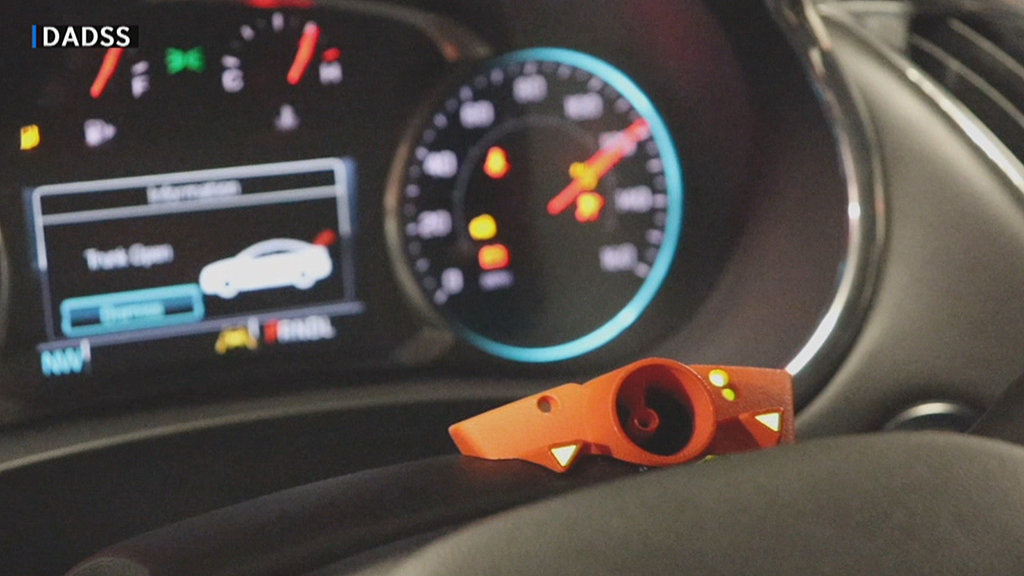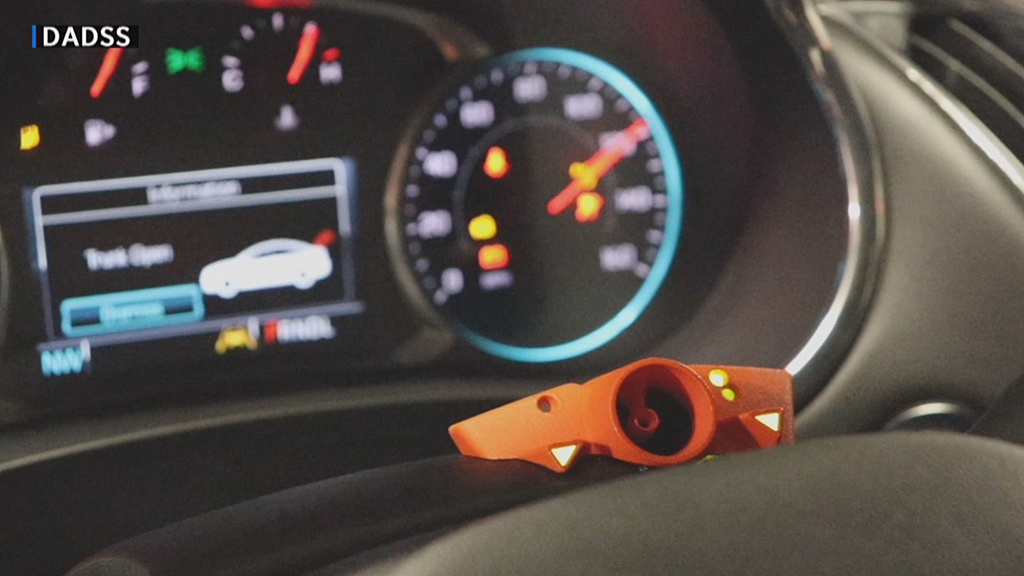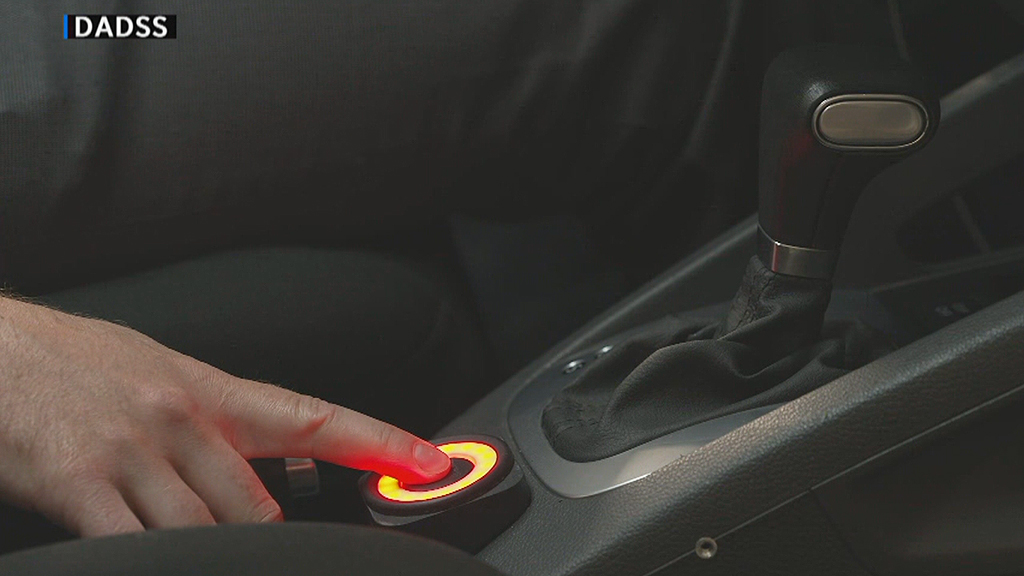BOSTON (CBS) – Drunk driving kills more than 10,000 people every year in the United States. A new law aims to change that by requiring alcohol detection systems in cars to stop impaired drivers from getting behind the wheel. The new law applies to everyone, not just people with a history of drunk driving.
Sarah Carmichael says a crash in February 2008 changed her life forever. She was stopped at a light in Framingham when she was hit by a drunk driver.
“I was in a medically induced coma for about 10 days,” Carmichael said. “C1 and C2 vertebrae in my neck were fractured as well as the base of my skull, both sides of my collarbone, 11 of my ribs, my pelvis was shattered,” she told WBZ-TV’s I-Team. “Doctors prepared my family that I was not going to live.”
Her recovery took years, and it wasn’t easy.
“With my pelvis being shattered I had metal bars to stabilize it, had to use a walker to get around. I had to learn how to walk again, basically how do everything from sitting up in bed on my own to brushing my teeth,” she said.
Carmichael became an advocate for victims and along with Mothers Against Drunk Driving (MADD) pushed for federal legislation that would make alcohol detection systems mandatory in all vehicles.
It happened on Tuesday when President Joe Biden signed the infrastructure bill that requires new cars have the systems installed as standard equipment.
KEA Technologies in Marlboro is just one of several working on the advanced impaired driving technology. The Driver Alcohol Detection System for Safety (DADSS) program uses infrared sensors mounted on the dashboard and door that register a driver’s breath and touch sensors that capture blood alcohol levels in the skin and the results the company says only take a second.
Bud Zaouk, President and CEO of KEA Technologies leads a team of engineers and scientists who are testing and evaluating the DADSS technology. He says it is a non-invasive system.
“You get in the vehicle the sensor will detect if you have alcohol and how much you have alcohol,” Zaouk said. “It will be something that tells you that you are above the legal limit in your state. You can start the vehicle but not allow you to move the car.”
MaryKate DePamphilis with the Boston chapter of MADD says requiring alcohol detection technology will make the roads safer.
“Despite the pandemic we are seeing an uptick in fatality crashes,” DePamphilis said. She predicts based on early data that Massachusetts will see a 9% increase in deaths which translates into 130 dead in 2020.
But critics of the technology worry that the car data could raise privacy concerns.
“Obviously this is not the cop on board,” Zaouk said. “This is not something that is going to be monitoring you and recording what you are doing. It’s just there to really prevent you from making the wrong decision.”
For victims like Sarah Carmichael who still struggles with health issues, this legislation couldn’t come fast enough.
“It is absolutely about time that drinking and driving stops. So, there will be no more victims like myself and no other family will have to suffer like my family did,” she said.
The new technology won’t be in new cars for several years. The National Highway Traffic Safety Administration first has to choose the system and set up the safety standards, then automakers will get three years to install it, so new cars with the equipment likely won’t start rolling off the assembly line until 2026.


